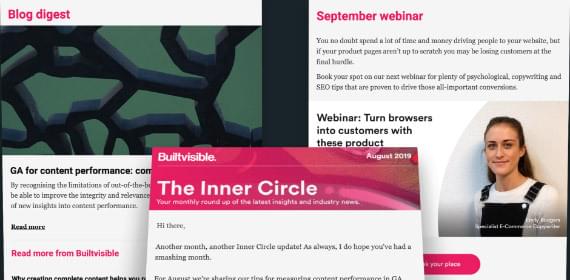Big shiny campaigns with 300 links are irrelevant unless you know the exact ROI of that campaign.
Creative- and content-led link building campaigns are fun to work on. It’s easy to be excited and proud over a big study you’ve conducted or an innovative data visualisation that’s just gone live. But if you have no idea what the impact of that content has been, there’s little cause for pride.
We are marketers. We exist to make money for our clients. If we don’t understand the impact of the project we’re working on we’re simply not doing our jobs.
At SearchLove this year, I spoke about the fractured relations between SEO and PR.
After speaking to a number of PR professionals, it became pretty clear that the value of SEO isn’t something we’re coherent and clear about, particularly when we’re talking about link building.
Link building is often the touch-point at which we need to collaborate the most. We need brand teams to sign off ideas, PR teams to sign off media lists and marketing directors to sign off budget.
Despite that, the majority of agencies aren’t at a point where they feel comfortable forecasting the financial impact of that activity. No wonder that link building campaigns are often where things move slowest.
If we had robust forecasting systems and were able to clearly demonstrate the revenue potential of our link building campaigns we’d have other teams pushing to get things live with us. As it stands, when you talk to CMOs about SEO there’s a tangible reluctance to run large content-led link campaigns—they’re often seen as a black hole in terms of value. They’re costly, time-consuming and often the return isn’t made clear.
Let’s change the perception of our channel by moving away from the trend of selling work we don’t understand.
I’d love to hear your thoughts and ideas on how you’re forecasting and measuring the financial impact of individual link building campaigns!
At Builtvisible, we’ve built a model designed to tell us how and where to build links we can forecast the impact of. Our work is completely guided by ROI.
You can read about that here.

Mohd Amir
I really impressed with your article, so great & useful knowledge you mentioned here
Digital marketing bureau
Well doesn’t it all just come down to people being slacking with their keyword research ? like most agencies telling companies you have to pay alot for links to get revenue, then you will rank on this “tophy keywords” but again compared to what they payed for those links, how much will it generate in revenue?
Doing proper keyword research before telling your clients you need to pay this and that, makes it way more easy to measure on you ROI and KPI and what will benefit the company most.
Also paying for 300 links and getting a 5th place on Google wont give you a precise answer on wether you will get a higher ROI.
You will never be able to tell a client.. okay exactly 300 links and you will be number 1 on this keywords, in my experiance. I never work for 1 placement in organic keyword, i work for 5-4th place an from there a proper metainformation can give you a high enough CTR which in it self will bring you to placement number 1. And then all the content and videos and so on comes into to picture, if you want to convert more. Keywords dont nessarily give you more conversions and better ROI, your website does that, and your prices on your products does that, and how good your site is with UX.
Petar Jovetic
Hey Rebecca,
This is a great article, thanks for posting.
No doubt it resonates with many, if not all, content marketers the difficulty of attributing direct ROI from any link building campaign.
However, you mention that “…If we had robust forecasting systems and were able to clearly demonstrate the revenue potential of our link building campaigns we’d have other teams pushing to get things live with us…” without actually mentioning what the robust forecasting system is.
Outside of assisted conversions, I’m wondering how Builtvisible go about forecasting revenue from link building campaigns? Be great to hear your ideas as, like I say, it’s something we struggle with and also want to improve!
Cheers,
Pete